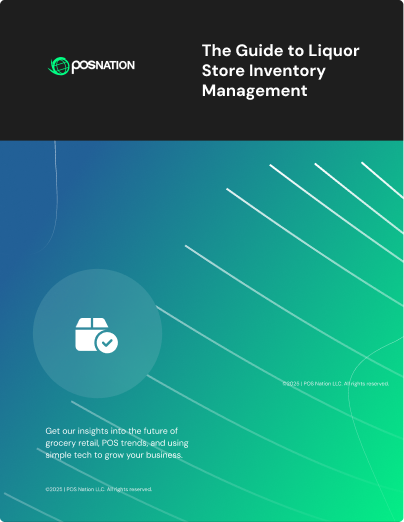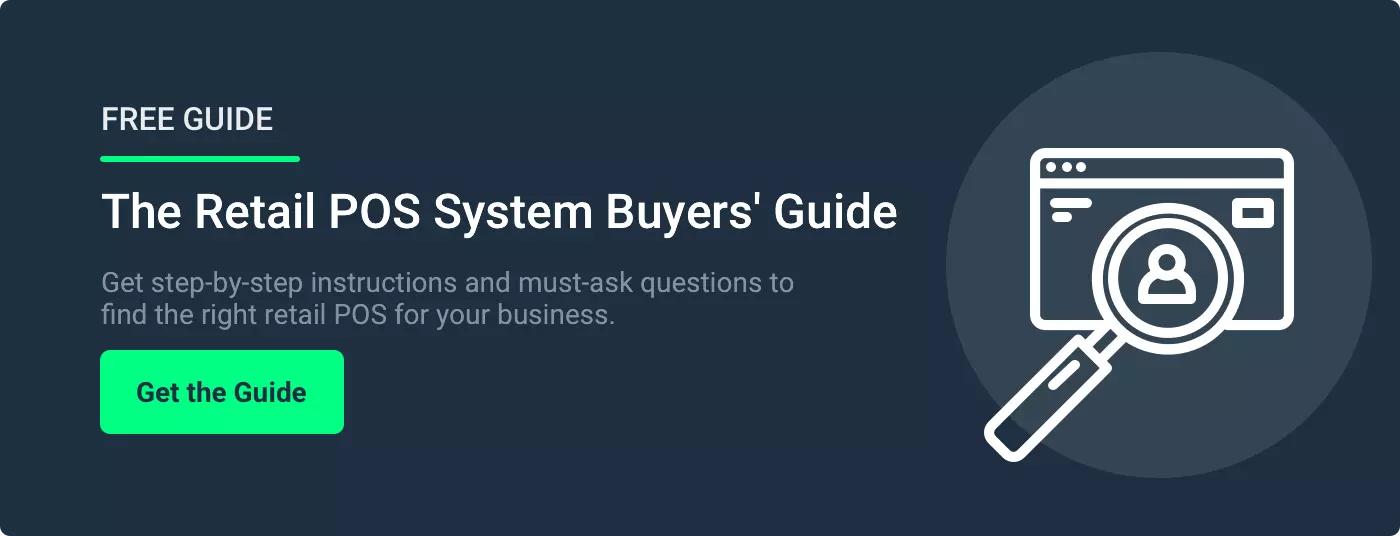Selling food online is simpler than ever. Selling liquor is a different story.
Consumers are spending more time online and, in turn, spending more money. Forecasts estimate that US e-commerce sales will cross $1 trillion for the first time in 2022. The industry has grown more in the last 18 months than it has in a decade.
So, if you want to sell liquor online, now is the time. With COVID-19 changing the e-commerce landscape, alcohol sales surpassed $6 billion in 2021 and will continue to grow.
With that in mind, this blog post will take you through every step you need to sell liquor online in a heavily regulated industry.
How To Sell Liquor Online
Here’s what’s coming in this article:
- Get Your License
- State Laws
- Set up your Store
- Integrate Your Store With a Robust POS System
- Develop Relationships With Suppliers
- Make Your Customer Experience Great
- Market Your Online Store
Opening an online liquor store can be exciting and rewarding. We’ve thought of everything you need to be successful, including the rules and regulations to follow, logistics and shipping considerations, setting up your store, and even consolidating your brick-and-mortar store with your online store.
POS Nation helps liquor stores tackle the day-to-day challenges of running a liquor store, using the latest point of sale technology to simplify and automate operations and free up time for better things.
Schedule a customized demo with our product team for a full tour of our POS system designed for liquor stores.
1. Get Your License
The first step before opening a liquor store is to get your license. Depending on state laws, you’ll need:
- Alcohol Dealer Registration
- State Retailer License
- Shipping License
- Carrier Shipping Agreements
You will also need an e-commerce liquor license.
The types of licenses you’ll need also vary depending on the types of alcohol you sell, and some states require licenses for home delivery. Your best bet is to research your state’s liquor laws and apply accordingly.
To apply, you’ll need to provide additional paperwork, such as your EIN (employer identification number) and business license. Bear in mind that it can take up to six months to be approved.
2. Check With State Laws for Selling Alcohol Online
Once you have your licenses and paperwork, you’ll need to research your local state laws on shipping alcohol. You might need to get one more shipping license. This is the government's way of approving your business to send alcohol to customers.
One license is required to ship alcohol in the same state as your business, but you’ll need a license for every state if you plan on crossing state lines.
Most individual consumers can get alcohol shipped for personal consumption, but three states prohibit it (Alabama, Oklahoma, and Utah), so you’ll need to factor this in. A handy resource for checking state laws from the National Conference of State Legislatures is the Direct Shipment of Alcohol State Statutes.
3. Set Up Your Store
Now that we’ve got the legal stuff out of the way, it’s time to set up and open your online store!
There are a few things to consider and some best practices to follow.
Do you have a niche? Do you want to sell all types of liquor, or is your focus on one type? For example, you might want to sell just whiskey and become known as the best place to buy high-end bottles. Branding this way opens up opportunities for cross-selling and upselling.
Make sure your online store looks professional, loads quickly, provides a great buying experience, and is responsive on mobile. Modern-day customers expect speed and ease.
You should upload great product images and write detailed item descriptions when adding inventory. The more detailed your listings, the easier it is for customers to learn about the product and make a purchase — and for staff to do inventory management later on. Some POS providers offer a standard liquor store database and a free inventory import to make initial set up much simpler.
Make sure your branding stands out. Customers can buy alcohol in many online stores; why should they shop at yours? Do you appeal to young and trendy folks? Or, like our earlier example, are you a more elegant brand selling high-end whiskey? Once you decide, find ways to incorporate branding into your purchasing process.
4. Integrate Your Store With a Robust POS System
It’s crucial to integrate your store with a robust point of sale solution that makes inventory a breeze, informs your strategies for selling products, and improves the customer experience.
Some essential POS features include:
- A centralized database – makes onboarding easier with common liquor items already on the system that you can customize for your store.
- E-commerce website – some POS providers include an e-commerce website with integrated third-party delivery.
- What’s selling – quickly identify which brands are driving your sales and automatically rank all of your items based on sales patterns.
Related Read: 5 Must-Have Liquor Store Point of Sale System Features
5. Develop Relationships With Suppliers
It’s crucial to develop relationships with wholesale suppliers if you’re not physically brewing your beer or crushing your own grapes. Suppliers who take care of distribution handle the back end while you develop your brand and provide a positive customer experience.
Alternatively, you could choose a shipping provider. UPS and FedEx can ship alcohol. The process is pretty straightforward:
- Register an account
- Sign the shipping agreements
- Create your shipping labels
- Abide by the packaging requirements for each beverage
- Require a signature from someone over 21
- Stick your shipping labels to your products
- Ship
Be sure to check the shipping regulations in your state or the states you want to sell your products in. Some states prohibit the shipping of alcohol, no matter which delivery company you use.
Top tip: Offer free shipping. You want to make it as easy as possible for your customers to buy from you.
6. Make Your Customer Experience Great
Before you think about throwing money at marketing, make sure you’re set up to delight your customers. With stiff competition online, you can’t get involved in a race to the bottom.
Go the extra mile to provide a seamless shopping experience. Customers want the same level of service and personalization between your physical and your online store. Invest in excellent customer service and a robust shipping policy. You can also connect your brick-and-mortar store to your online store and offer BOPIS or click-and-collect options.
You might offer bulk order discounts, gifts, and loyalty programs. Subscription options are a fantastic idea for regular drinkers. For true personalization, recommend products based on your customers’ purchase history and send them educational and entertaining content to build a relationship.
Consider bundles and promotions. Birthdays, anniversaries, and special occasions are great times to reach out to your customers and offer discounts and gift cards.
7. Market Your Online Store
Once you have your store set up, you’ve got your licenses, and you know what you’re selling and who to, you can focus on reaching your audience. Start small. Where are your customers?
Where do they hang out? Your potential customers need to be familiar with your brand before buying. Strive to attract people to your online store using multiple channels.
Let’s say you cater to whiskey enthusiasts who get overwhelmed by the number of different whiskeys available online. You could write content that tells them who the best brands are and what to look for and then position yourself as an authority. You might also use social media, video content, and incentive programs. The more your audience knows, likes, and trusts you, the more likely they will buy from you.
An excellent way to engage with your customers is to start a mailing list. Regular contact keeps your brand fresh in their minds. You can send periodic newsletters and discount codes. You might offer seasonal promotions or bundles on low-selling items. You could also build package deals to cross-promote.
Related Read: 5 Ways to Build Your Small Business’ Online Presence
How To Sell Liquor Online the Easy Way
To provide stellar service to your customers, integrate liquor store POS systems with your e-commerce store. From streamlined operations to built-in customer loyalty, your liquor store POS is a powerful ally as you strive to grow your business.
Schedule a customized demo with our product team. They’ll show you the ins and outs of your POS system and how to sell liquor online easily.







 by Spence Hoffman
by Spence Hoffman



 by Cort Ouzts
by Cort Ouzts